A Pandemic. False Fraud Claims. A Misplaced Flash Drive. How Milwaukee Elections Chief Led High-Pressure Vote Count.
Facing intense scrutiny, Claire Woodall-Vogg fought against ‘racially motivated’ attempts to suppress voting in the 2020 election
Wisconsin Watch
December 15, 2020
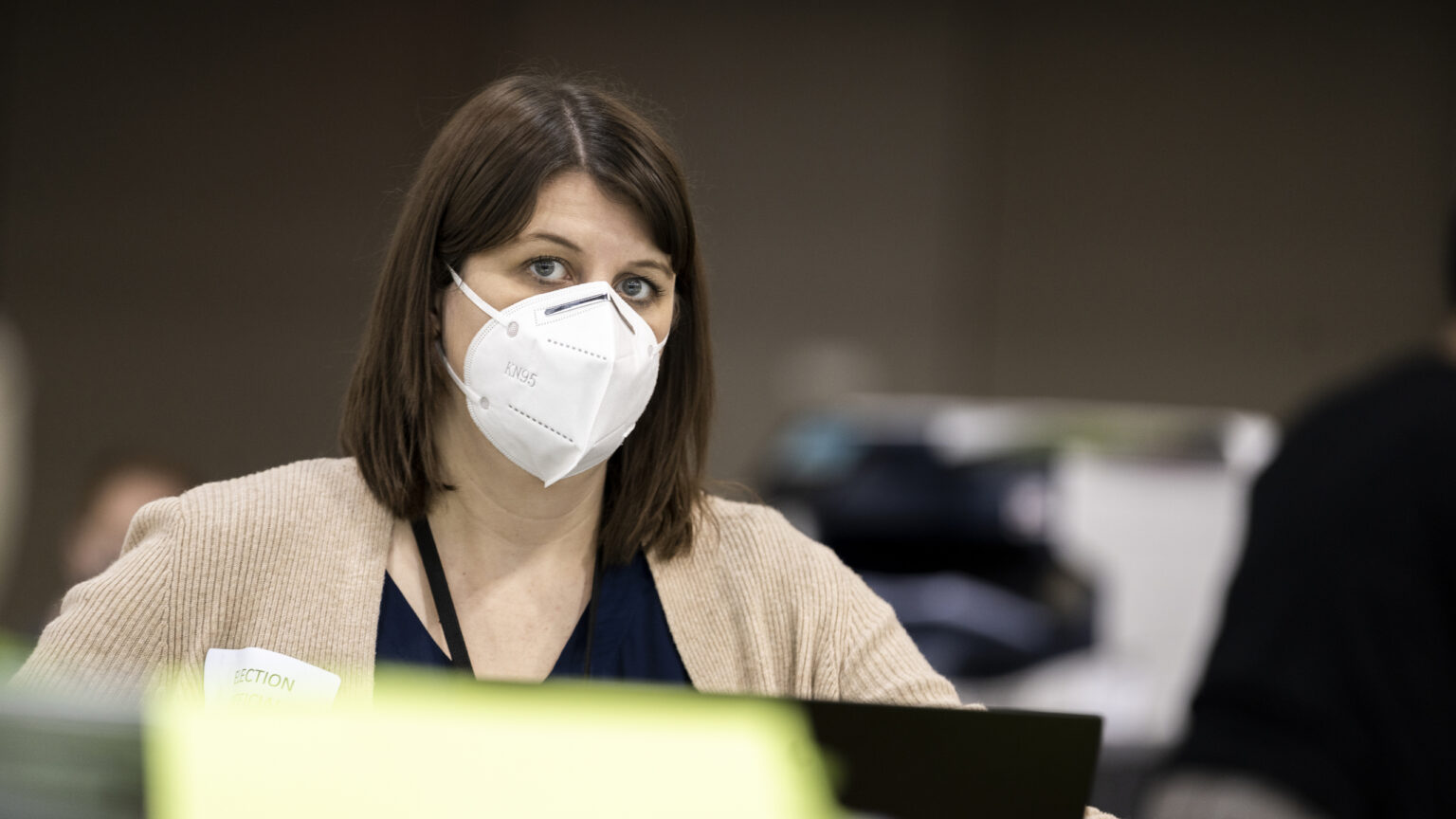
Claire Woodall-Vogg, executive director of the Milwaukee Election Commission, works at the presidential recount at the Wisconsin Center convention center in Milwaukee on Nov. 25, 2020. (Courtesy: Sara Stathas for Wisconsin Watch)
By Nora Eckert
Wisconsin Watch
This article is made possible through Votebeat, a nonpartisan reporting project covering local election integrity and voting access.
Election workers across the nation have been threatened with violence and accused of tampering with results of the Nov. 3 election. For these people, the desire to serve their communities has come with unexpected tensions because of a bitterly contentious presidential race and the subsequent legal battles over its outcome.
Claire Woodall-Vogg has weathered many such challenges in her five months as the top election official in Milwaukee — the largest city in a swing state whose results were the subject of allegations of “late-night ballot dumps” that favored President-elect Joe Biden.
“(It’s been) extremely partisan and divided,” said Woodall-Vogg, executive director of the Milwaukee Election Commission. “The fact that people are supporting someone trying to overturn the actual results is disappointing.”
Many of her colleagues laud her performance. Milwaukee Mayor Tom Barrett told Wisconsin Watch that she ran the most transparent election the city has ever seen. Common Council President Cavalier Johnson called her performance “stellar” and her predecessor, Neil Albrecht, said he “couldn’t think of anyone more dedicated to avoiding error.” Her deputy, Jonatan Zuniga, said if she “had a million and one things to do, she did them all.”
Still, critics rebuke her missteps, such as mistakenly leaving behind a flash drive in a tabulator on election night, which she later retrieved.
“Word of advice, Claire — if you can’t handle your job on the biggest election night every four years, find a different line of work,” former Milwaukee alderman Bob Donovan said on his Facebook page. He declined an interview.
This election has forced Woodall-Vogg to take on responsibilities she never anticipated, becoming the face and voice of Milwaukee for news outlets across the country and fighting attempts to cast Wisconsin’s vote count as fraudulent.
A student of history
As a child in Birmingham, Alabama, Woodall-Vogg developed a passion for history. Her parents skipped trips to Disney World, instead choosing visits to Gettysburg, Williamsburg or the Alamo.
Growing up in the city where the civil rights movement blossomed, she understood from a young age the attempts to suppress Black voters and the sacrifices people made to fight for their rights. It’s something that stuck with the 34-year-old after she moved to the Midwest.
“I do think that voting rights in Wisconsin are very much under attack and in a very racially motivated way,” Woodall-Vogg said.
She pointed to the Donald Trump campaign’s partial recount targeting absentee voters in Milwaukee County, which has nearly 70% of the state’s Black population.
Her road to Wisconsin’s largest city was circuitous. While attending college in Alabama, she volunteered in Tanzania, where she met her then-boyfriend, a Milwaukeean. She landed at the University of Wisconsin-Milwaukee — a snap decision that would change the trajectory of her personal and professional life.
She loved the friendliness of the Midwest, which reminded her of the South. She entertained a career in law, inspired by her father, a retired Alabama Supreme Court justice. She quickly realized the field was not for her.
After a few moves back and forth to Alabama, she returned to Milwaukee in 2010 to work with Safe & Sound, a community group focused on decreasing drug and alcohol use. There she met Albrecht. And when he left to direct the Election Commission, Albrecht convinced her to join him.
Early days at the commission
Woodall-Vogg never envisioned herself leading the commission. She recalls sitting in the parking lot outside Central Count in 2014, dry heaving at the thought of running the facility during her first general election. There were 23,244 absentee ballots to count in that election. This year, her team processed just over 169,000.
Albrecht said Woodall-Vogg grew into the role, organizing voter engagement and education — a role she loved because it allowed her to work alongside community advocates.
After 6 1/2 years with the commission, she made the difficult decision in 2019 to pursue a slower-paced job as Cedarburg’s city clerk. Woodall-Vogg knew almost immediately it wasn’t a good fit. She found herself constantly emailing Albrecht to see what the commission was up to.
Woodall-Vogg was in the final round of interviews to be the chief elections official in Buncombe County, North Carolina, when Albrecht told her he was retiring — and recommending her as a potential successor.
Pandemic sweeps through Wisconsin
Woodall-Vogg returned to the commission in February, with Albrecht still at its helm. They steeled themselves for what they knew would be a punishing election cycle.
“Any year there was the presidential or the midterm, we had to just accept the fact that you were going to be sacrificing that year of your life, that it would be impractical for you to commit to vacations or social engagements, or lunches or weekends away,” Albrecht said.
Then the pandemic hit. With so much unknown about the virus, fear swelled across the state and within the commission, yet staff continued to come to work in person with no personal protective equipment to get through their mountain of work. Woodall-Vogg recalls barely sleeping before returning to work.
In a normal election, her parents traveled to Milwaukee to help out with her son. Concerned about Woodall-Vogg’s constant exposure to other people, they brought their grandson back to Alabama. She’s spent five weeks apart from him this year.
The April primary became a national lightning rod. In Milwaukee, the normal number of 182 polling places was reduced to five. Voters waited for hours in line, and a study by the Brennan Center for Justice found the decrease in polling places especially hurt Black voter turnout.
Woodall-Vogg focused on absentee voting during the April election, saying the controversial decision to sharply cut polling sites was handled by Albrecht and his deputy, Theresa Gabriel.
A tense confirmation process
After enduring the grueling April election, Woodall-Vogg faced another mountain: confirmation.
Johnson, the council president, thought she was an excellent fit. “We really needed somebody to step into position and to do the best job possible. And I was convinced that Claire was that candidate,” Johnson said.
Yet, her confirmation quickly became chaotic, resulting in her withdrawing and renewing her candidacy in the space of a week.
In the wake of the May 25 George Floyd killing, the council decided on June 16 to send all of Barrett’s appointments back to committee to hear their plans for racial justice.
Timing was crucial: Albrecht’s term was ending and the August primary was looming. Gabriel planned to step down, leaving the commission without a director or deputy if Woodall-Vogg was not appointed.
Some council members wanted more time to evaluate her. Woodall-Vogg, who is white, was frustrated by the insinuation that she didn’t understand or focus enough on the attempts to disenfranchise people of color.
“I don’t think social justice and the injustice and attack on voting rights was anything new to me or Neil, or to the election commission and how we’ve operated,” she said.
Adding to her stress, Woodall-Vogg planned to move from Glendale to Milwaukee on the night of the commission meeting, a prerequisite to serve in Barrett’s cabinet. She decided to withdraw and pursue a position as the clerk in West Allis.
Following the decision, Woodall-Vogg sent an email to Ald. Milele Coggs in “a moment of complete emotion.” In the message, she expressed frustration with how some council members kept raising Gabriel as an option to take the executive director position, focusing on her sexual orientation and race. In the email, Woodall-Vogg described her former colleague as “an openly gay, Asian female who has zero passion for recruitment, training of poll workers, which was 80% of her job duties.”
Coggs called the email “completely unprofessional and disrespectful.”
“I owe them both an apology,” Woodall-Vogg said, adding that since then, her relationship with Coggs has improved. Coggs did not respond to requests for an interview.
A week after she withdrew, Woodall-Vogg reversed her decision. On July 7, her appointment was approved by an 8-7 vote.
An historic general election
Woodall-Vogg brought on Zuniga, a Milwaukee resident with a passion for voter engagement, as her deputy. Johnson said Zuniga’s appointment affirmed that Woodall-Vogg would back up her proposed plans on racial justice and inclusion with action.
Woodall-Vogg is proud of how her team performed on Nov. 3. The Central Count operation at 501 W. Michigan was run by a cavalry of PPE-clad workers set up in pods to avoid movement around the room and potential spread of the virus.
Barrett said Woodall-Vogg’s experience with the technical aspects of Central Count was one of the reasons he nominated her.
“I never saw someone get so excited about an envelope opener,” he said. “The technology to do this is something that really excites her.”
While election workers were hard to find in April, under Woodall-Vogg, the city deployed 3,400 people for the Nov. 3 election — a 1,000-person increase from 2016. The city had 173 polling places open for in-person voters, and 14 early voting sites.
Flash drive flashbacks
One gaffe that continues to weigh on her mind is when she left a flash drive in a tabulator on election night. Critics say it compromised election security, but Woodall-Vogg adamantly denies this, noting that the drive was visible on the livestream and under constant supervision by other commission members.
Looking ahead, Woodall-Vogg fears continued resistance from the Legislature on changes that she thinks would make administering elections more efficient and voting more accessible for Wisconsinites. Albrecht said the Legislature’s actions pushed him to retire.
“You can only get beaten down so many times,” he said.
With the election and recount over, Woodall-Vogg’s focus is now closer to home. She is 20 weeks’ pregnant.
“I did have a lot of morning sickness — I had all-day sickness,” she said, “but it might have just been from the elections.” Woodall-Vogg can’t wait for nights where she can watch reality TV and cook focaccia bread for her husband and son instead of worrying about absentee ballots.
When she looks back to the time six years ago that she sat frozen in her car, wondering if she could run Central Count during a general election, she comes back to one theme.
“Sometimes when you’re given no other choice, when there’s no one else to do it, you just … do it.”
The nonprofit Wisconsin Watch (wisconsinwatch.org) collaborates with WPR, PBS Wisconsin, other news media and the University of Wisconsin-Madison School of Journalism and Mass Communication. All works created, published, posted or disseminated by Wisconsin Watch do not necessarily reflect the views or opinions of UW-Madison or any of its affiliates.
 Passport
Passport





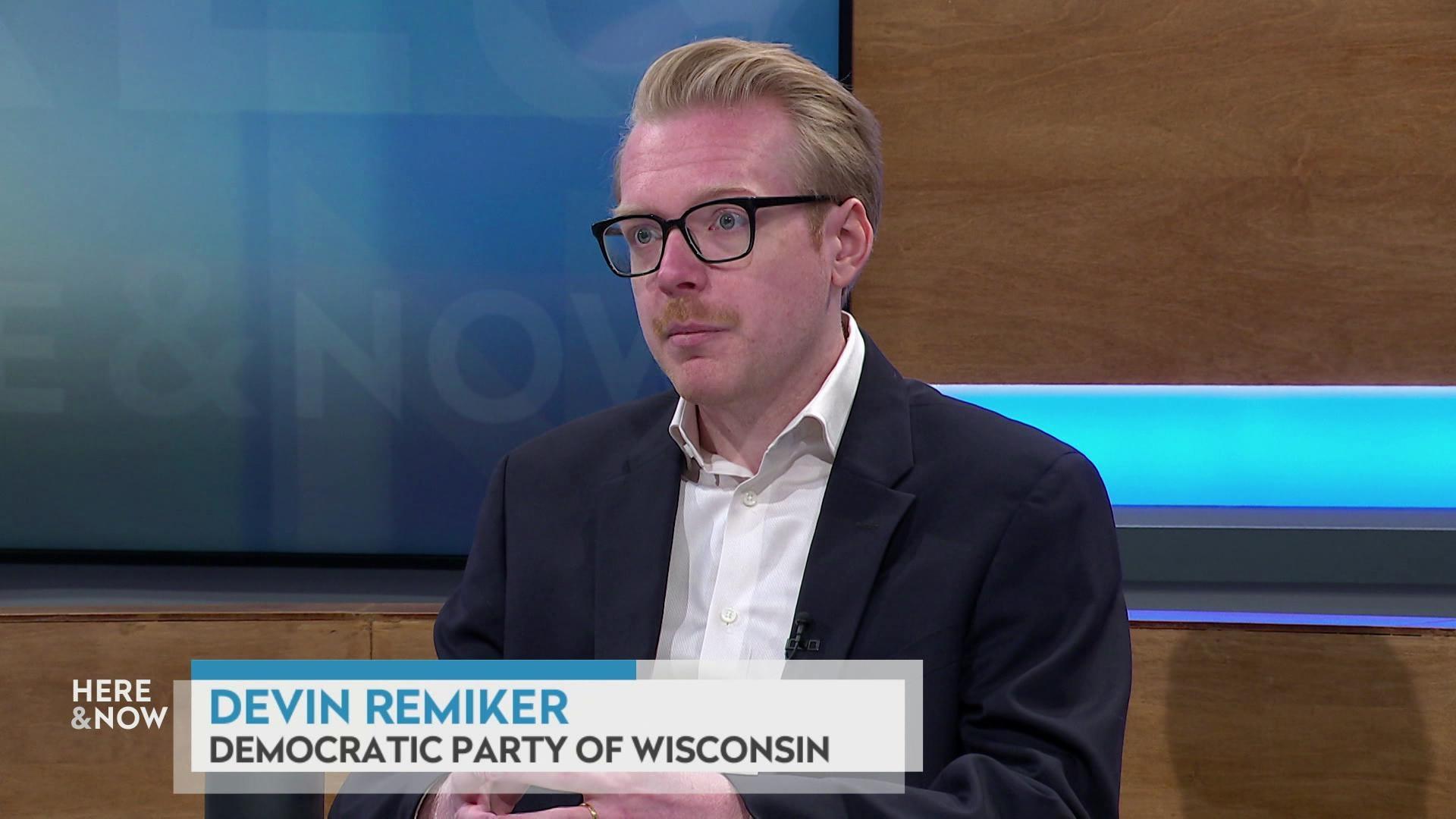
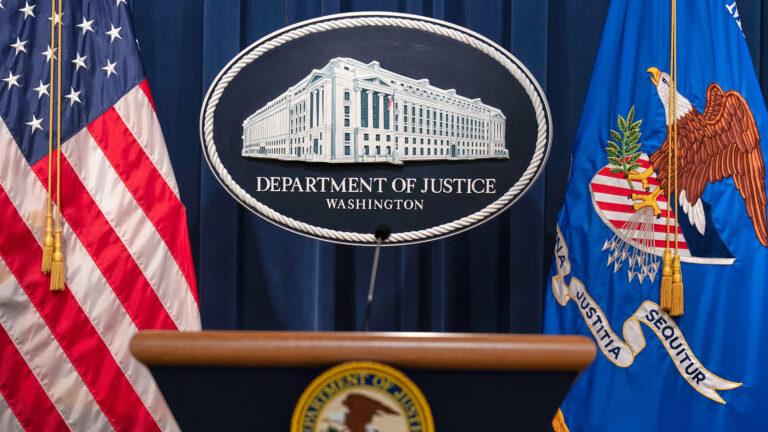
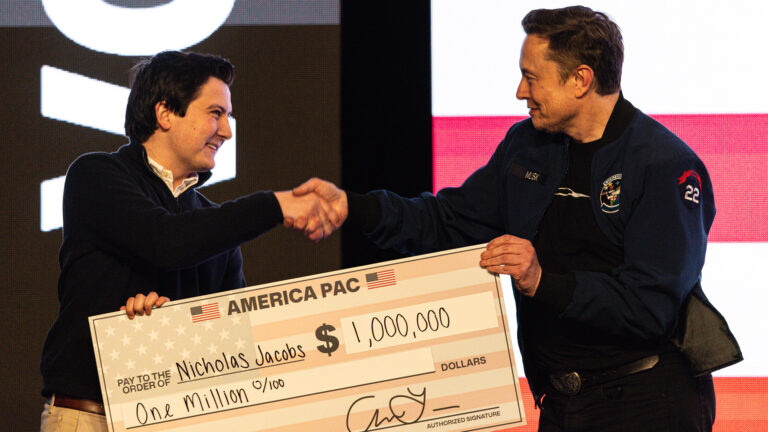
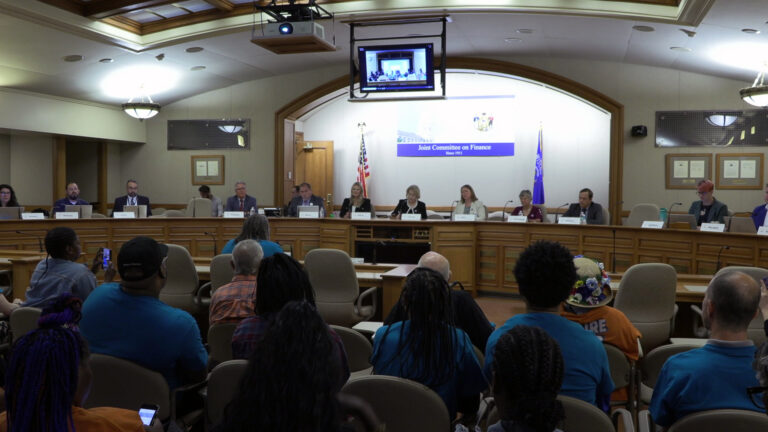
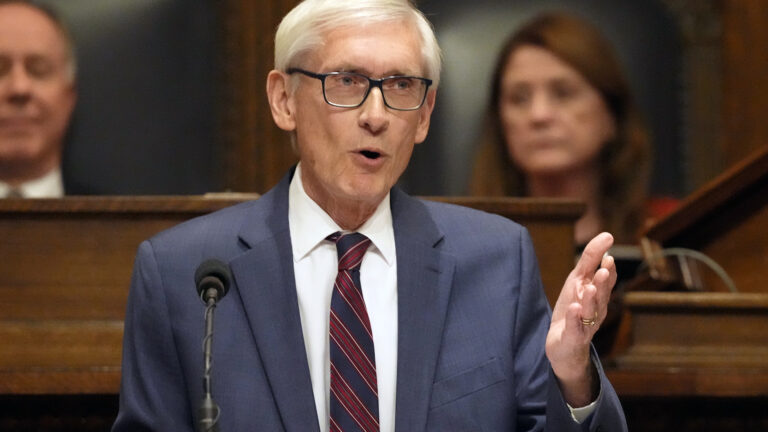

Follow Us